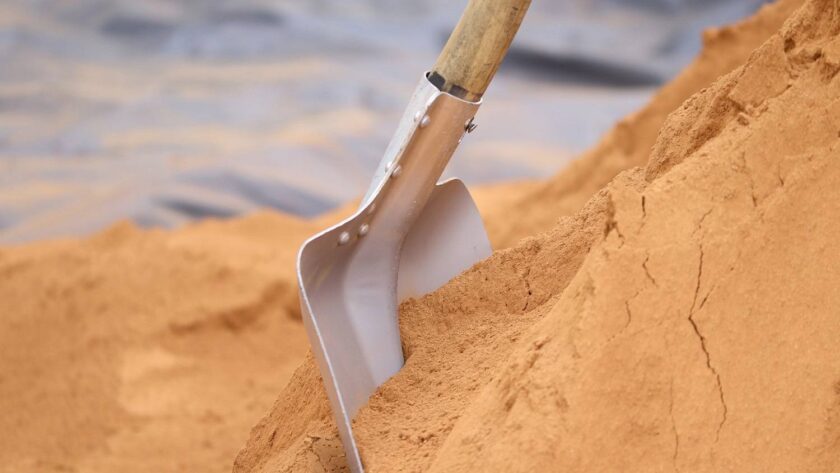When are geotechnical studies needed? A geologist and a geotechnician are specialists whose help can be invaluable, both in the case of a private investment (e.g. building a house) and a company dealing with the exploitation of deposits. The task of these people is to perform a geotechnical expertise that will allow the investor to make a decision on the involvement of funds and avoid catastrophic mistakes that may result in both financial losses and threaten safety. What are geotechnical studies and when are they needed?
Geotechnical research – exploration of deposits
A mining geologist is a person who professionally deals with the field of mineral geology. Already operating mining companies, e.g. from the hard coal mining industry, are still looking for deposits of natural resources, the extraction of which will be profitable. This applies in particular to resources located shallow underground, with good physical and chemical properties.
- https://hjo.com.pl/systemy-ochrony-obwodowej/
- https://www.haj.org.pl/czym-zajmuje-sie-podologia/
- https://www.amazonas-baby.pl/proces-windykacyjny-jak-dlugo-trwa-i-na-czym-polega
Geological exploration of deposits is commissioned to specialized entities also by investors operating only at the stage of exploration for deposits. Deposit geology includes locating deposits of valuable raw materials and their comprehensive analysis. A geotechnical study of the discovered deposit is needed to estimate its size, depth underground and the profitability of mining. This can be done by professional geotechnical companies with appropriate equipment for field work (e.g. probes, drilling rigs) and an analytical laboratory.
The culmination of their work is detailed documentation of deposits. However, it is not only the exploration of deposits that requires geotechnical research. A geotechnical opinion is required before designing and constructing all kinds of buildings, including single-family houses.
- zaluzjefasadowe.waw.pl
- skleppodologiczny.com.pl
- nieruchomosci-szczecin.net.pl
- radia-samochodowe.com.pl
Geotechnical research before building a house
The construction of a single-family house should always be preceded by the examination of the ground on which it is to be founded. This is required by the provisions of the construction law. The geotechnical survey requirement is sometimes also specified in the spatial development plan. Certainly, however, a visit to the commune office and getting acquainted with the plan is not enough here. It is also worth getting acquainted with the geological or hydrogeological maps of the area where the investment is to be built. It may turn out that the plot is not suitable for construction due to the quality of the soil or groundwater level.
It is best to rely on the help of a professional company that provides geological and geotechnical services. It is sometimes good to ask for an opinion in this regard before buying a plot, as this will allow you to avoid a missed investment.
What is the purpose of geotechnical research?
The foundation of any object (e.g. house, road, bridge) on unsuitable ground may result in numerous negative consequences. Constructing a single-family house on the wrong ground can cause cracking of the walls, subsidence of the building, infiltration of groundwater into the cellars, and even the risk of the structure collapsing. It is also difficult to plan the construction of a household sewage treatment plant without a thorough examination of the area and waters below the surface.
Soil geological surveys are needed to determine the composition and structure of the soil as well as the groundwater level. These tests must necessarily be carried out on the part of the plot that is to be used for the foundation of the building. However, it is good to examine the entire area and choose a place where the ground will be the most load-bearing. A geologist or geotechnician, in his expertise, will also specify the type, size and depth of the foundations, as well as suggest how to protect them from moisture. In addition, he will indicate the methods of securing underground garages and cellars against flooding by groundwater.
How is the geotechnical survey carried out?
Soil and groundwater analysis on a given property is possible by performing point drillings. Geological surveys of the soil begin with a site inspection, during which the locations for drilling are selected. Most often, they are made in locations intended for the corners of the building and possibly in the intersection of diagonals. In the case of houses without a basement, drilling is done to a depth of about 3 meters. Buildings with basements or underground garages require deeper drilling, usually to a level of 3-6 meters below the surface. Soil and water samples are taken from the boreholes and then tested in the laboratory. On its basis, the composition of the soil and the level of its plasticity and density are determined.
In addition, groundwater is tested in terms of the level of retention and chemical composition, as well as the way it affects concrete. The geotechnical survey is completed with an opinion. The prepared documentation contains data specifying the type of soil on a given plot, together with an indication of those that are load-bearing. In addition, it contains geotechnical parameters and determines the mutual location of the soils. It also gives full knowledge about the location of groundwater and their impact on the designed building.
The geotechnical survey not only allows you to collect the documentation required to obtain a building permit. It is, above all, necessary for the construction to proceed without unpleasant surprises and for the building to be fully safe.









